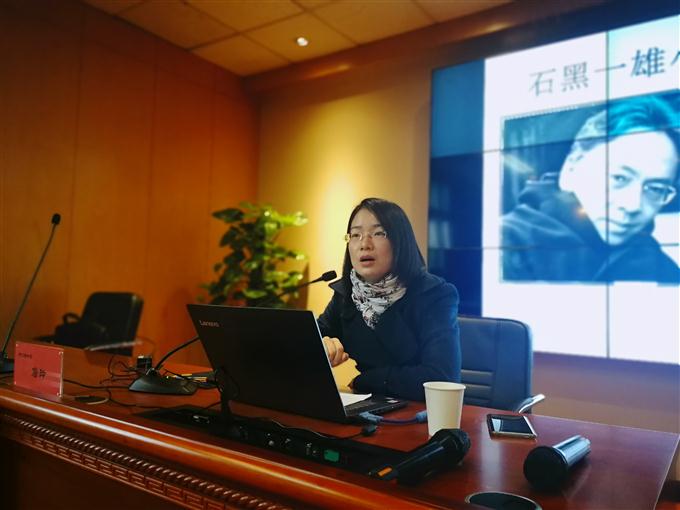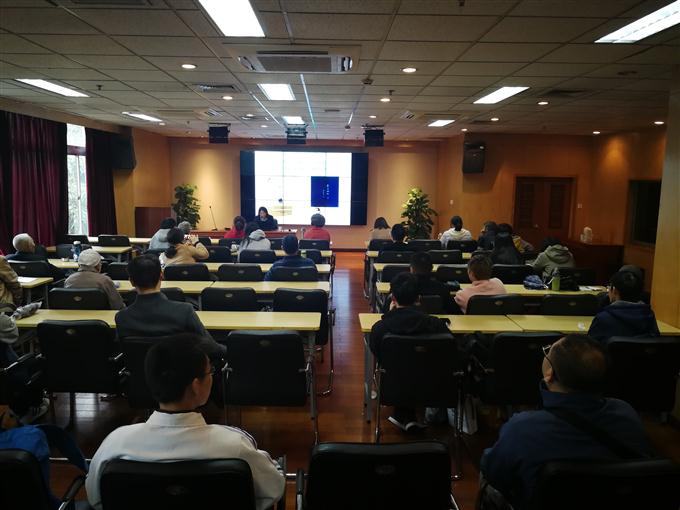 pub:Zhejiang Library
pub:Zhejiang Library  time:2018/11/21
time:2018/11/21  count:126
count:126
On Sunday, November 18, 2018, at 9:30 am, the lecture on "the Japanese characteristics in Kazuo Ishiguro’s novels" was held as scheduled in the collective audio-visual room of Zhejiang Library. Kazuo Ishiguro won the Nobel Prize for Literature as a Japanese-English writer. Zhan Ling, teacher at Hangzhou Normal University, read The Remains of the Day and Never Let Me Go thoroughly and analyzed the difference of western education in the novel and the Japanese characteristics in the blood of the author.
Zhan made it into a sharing session rather than a lecture. She shared her own reading experience and described the Kazuo Ishiguro’s novel as “slow”. There was no “sharp turn” in the plot, and the narration was meticulous and ordinary. In the beginning, it was hard for Zhan to get used to it, because she mainly studied science fiction. But then the slow pace made her gradually immersed in the world of the book.
Concerning The Remains of the Day, Zhan mainly analyzed and compared Japanese and British housekeepers. British housekeepers were generally recognized as “knowledgeable and professional”, and they “treat all people equally”. However, Stevenson created in the book by the author is something different. He believes in is full obedience and respect to the master. He even abandons himself and feelings to serve his enemy, who killed his son. Zhan compared this to the artisan spirit of Japan. She believed that the strict implement of professional integrity was praised, so one’s own professional dignity could be achieved. Meanwhile Kazuo Ishiguro enlarged the conflict between professional duties and personal affairs, strengthening the satisfaction of the profession through sacrifice.
This is more evident in the second book, Never Let Me Go. Other human cloning-themed science fiction novels are all about the struggle between clone men and humans, while this book tells a new story. In the book, clones are donors of organs, but they allowed themselves to be trampled upon by human beings. They accept their destiny peacefully, and they even respect those who die for organ donation. This shows Japanese obsession with fulfilling ones own fictions and reflection of the conflict between human feelings and interest identity.
In the end, Zhan Ling also extended to Japan's unique concept of death and mononoaware, and she used this as a summary to sublimate. The audience listened carefully and shared their independent thinking with the lecturer. The atmosphere was warm. Many readers will definitely read Kazuo Ishiguro’s books after the sharing of Zhan Ling.


By: Gao Yang, volunteer